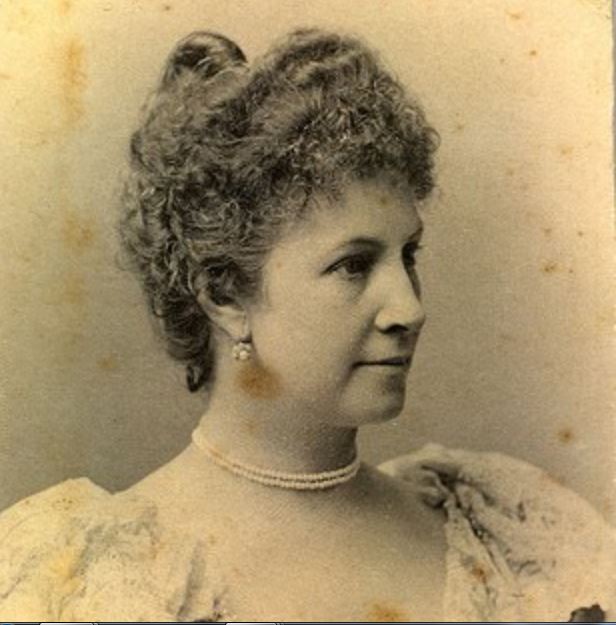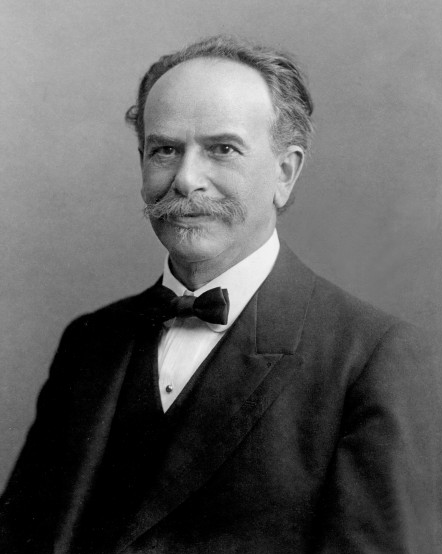|
Feminism In Latin America
Latin American feminism is a collection of movements aimed at defining, establishing, and achieving equal political, economic, cultural, personal, and social rights for Latin American women. This includes seeking to establish equal opportunities for women in education and employment. People who practice feminism by advocating or supporting the rights and equality of women are feminists. Latin American feminism exists in the context of centuries of colonialism, the transportation and subjugation of slaves from Africa, and the mistreatment of native people. The origins of modern Latin American feminism can be traced back to the 1960s and 1970s social movements, where it encompasses the women's liberation movement, but prior feminist ideas have expanded before there were written records. While feminist movements in the region are often linked to the 1960s and 1970s, when women's liberation organizations started to gain prominence, the historical genealogy of Latin American feminis ... [...More Info...] [...Related Items...] OR: [Wikipedia] [Google] [Baidu] |
Eurocentrism
Eurocentrism (also Eurocentricity or Western-centrism) refers to viewing Western world, the West as the center of world events or superior to other cultures. The exact scope of Eurocentrism varies from the entire Western world to just the continent of Europe or even more narrowly, to Western Europe#Cold War, Western Europe (especially during the Cold War). When the term is applied historically, it may be used in reference to the presentation of the European perspective on history as Subjectivity and objectivity (philosophy)#In history and historiography, objective or absolute, or to an Apologia#Modern analysis, apologetic stance toward European colonialism and other forms of imperialism. The term "Eurocentrism" dates back to the late 1970s but it did not become prevalent until the 1990s, when it was frequently applied in the context of decolonization and development aid, development and humanitarian aid that industrialised countries offered to developing countries. The term ha ... [...More Info...] [...Related Items...] OR: [Wikipedia] [Google] [Baidu] |
Aleida March
Aleida March Torres (born 19 October 1936) is a Cuban revolutionary who was Ernesto "Che" Guevara's second wife, and a member of Fidel Castro's Cuban army. Biography Aleida March was an active combatant in Che Guevara's Lightning Campaign in December 1958. She was present at the battle for Las Villas in which Column 8 of the 26th of July Movement was ordered by Fidel Castro to paralyze the occupying military forces of President Fulgencio Batista Fulgencio Batista y Zaldívar (born Rubén Zaldívar; January 16, 1901 – August 6, 1973) was a Cuban military officer and politician who played a dominant role in Cuban politics from his initial rise to power as part of the 1933 Revolt of t ... in the province. Her marriage with Che Guevara is reported to have happened both on 23 March 1959 and 2 June 1959, after his divorce from Hilda Gadea. A civil ceremony was held at La Cabaña military fortress. After the 2 June marriage, Guevara and Aleida went to Tarara, a seaside re ... [...More Info...] [...Related Items...] OR: [Wikipedia] [Google] [Baidu] |
Suffrage
Suffrage, political franchise, or simply franchise is the right to vote in public, political elections and referendums (although the term is sometimes used for any right to vote). In some languages, and occasionally in English, the right to vote is called active suffrage, as distinct from passive suffrage, which is the right to stand for election. The combination of active and passive suffrage is sometimes called ''full suffrage''. In most democracies, eligible voters can vote in elections for representatives. Voting on issues by referendum ( direct democracy) may also be available. For example, in Switzerland, this is permitted at all levels of government. In the United States, some states allow citizens the opportunity to write, propose, and vote on referendums ( popular initiatives); other states and the federal government do not. Referendums in the United Kingdom are rare. Suffrage continues to be especially restricted on the basis of age, residency and citizenship ... [...More Info...] [...Related Items...] OR: [Wikipedia] [Google] [Baidu] |
Clorinda Matto De Turner
Clorinda Matto de Turner (11 November 1852 in Cusco – 25 October 1909) was a Peruvian writer who lived during the early years of Latin American independence. Her own independence inspired women throughout the region as her writings sparked controversy in her own culture. She was forced into exile to Argentina. Early life and education She was born and raised in Cuzco, Peru. Matto de Turner's father was Ramón Mato Torres and her mother was Grimanesa Concepción Usandivares. When her mother died, she became known as ''Azucena de los Andes'' ("Lily of the Andes") throughout the region. Matto de Turner was baptized Grimanesa Martina Mato, but was called Clorinda among her friends and family. She originally had one "T" in her last name, but after studying the Inca culture she added the extra "T" to give the name an Inca flavor. Growing up in Cuzco, the former Inca capital, Matto spent most of her days on her family's estate, Paullo Chico, which is near the village of Coya. ... [...More Info...] [...Related Items...] OR: [Wikipedia] [Google] [Baidu] |
Micaela Bastidas
Micaela Bastidas Puyucahua (born in Tamburco, 1744; died in Cusco, May 18, 1781) was a pioneering indigenous leader against Spanish rule in South America, and a martyr for Peruvian independence. With her husband Túpac Amaru II, she led a rebellion against the Spanish and like him, was executed by the Spanish when the revolt failed. She was a full partner in her husband's enterprises before the revolt, and was described as "an exceptionally able leader of the rebellion." Biography Daughter of Josefa Puyucahua and Manuel Bastidas. The documentation on the life of Micaela Bastidas is not ample in comparison to that of her husband, but the historical record documents her birth, marriage, and death. Micaela was born in Pampamarca province of Canas (laqaymarca annexed iromocco community of Pabellones, of the district of Pampamarca, of the province of Canas in 1744). She was the natural daughter of Manuel Bastidas (d. 1746) (perhaps of African descent or a priest) and Josefa Puyuca ... [...More Info...] [...Related Items...] OR: [Wikipedia] [Google] [Baidu] |
Revolutionary Feminism
Radical feminism is a perspective within feminism that calls for a radical re-ordering of society in which male supremacy is eliminated in all social and economic contexts, while recognizing that women's experiences are also affected by other social divisions such as in race, class, and sexual orientation. The ideology and movement emerged in the 1960s. Radical feminists view society fundamentally as a patriarchy in which men dominate and oppress women. Radical feminists seek to abolish the patriarchy in a struggle to liberate women and girls from an unjust society by challenging existing social norms and institutions. This struggle includes opposing the sexual objectification of women, raising public awareness about such issues as rape and other violence against women, challenging the concept of gender roles, and challenging what radical feminists see as a racialized and gendered capitalism that characterizes the United States, the United Kingdom, and many other countries. Acco ... [...More Info...] [...Related Items...] OR: [Wikipedia] [Google] [Baidu] |
Rightist
Right-wing politics is the range of political ideologies that view certain social orders and hierarchies as inevitable, natural, normal, or desirable, typically supporting this position based on natural law, economics, authority, property, religion, or tradition. Hierarchy and inequality may be seen as natural results of traditional social differences or competition in market economies. Right-wing politics are considered the counterpart to left-wing politics, and the left–right political spectrum is the most common political spectrum. The right includes social conservatives and fiscal conservatives, as well as right-libertarians. "Right" and "right-wing" have been variously used as compliments and pejoratives describing neoliberal, conservative, and fascist economic and social ideas. Positions The following positions are typically associated with right-wing politics. Anti-communism Early communists used the term "right-wing" in reference to conservatives, placing th ... [...More Info...] [...Related Items...] OR: [Wikipedia] [Google] [Baidu] |
Multiculturalism
Multiculturalism is the coexistence of multiple cultures. The word is used in sociology, in political philosophy, and colloquially. In sociology and everyday usage, it is usually a synonym for ''Pluralism (political theory), ethnic'' or cultural pluralism in which various ethnic and cultural groups exist in a single society. It can describe a mixed ethnic community area where multiple cultural traditions exist or a single country. Groups associated with an Indigenous peoples, indigenous, aboriginal or wikt:autochthonous, autochthonous ethnic group and settler-descended ethnic groups are often the focus. In reference to sociology, multiculturalism is the end-state of either a natural or artificial process (for example: legally controlled immigration) and occurs on either a large national scale or on a smaller scale within a nation's communities. On a smaller scale, this can occur artificially when a jurisdiction is established or expanded by amalgamating areas with two or more di ... [...More Info...] [...Related Items...] OR: [Wikipedia] [Google] [Baidu] |
Bilingualism
Multilingualism is the use of more than one language, either by an individual speaker or by a group of speakers. When the languages are just two, it is usually called bilingualism. It is believed that multilingual speakers outnumber monolingual speakers in the world's population. More than half of all Europeans claim to speak at least one language other than their mother tongue; but many read and write in one language. Being multilingual is advantageous for people wanting to participate in trade, globalization and cultural openness. Owing to the ease of access to information facilitated by the Internet, individuals' exposure to multiple languages has become increasingly possible. People who speak several languages are also called '' polyglots''. Multilingual speakers have acquired and maintained at least one language during childhood, the so-called first language (L1). The first language (sometimes also referred to as the mother tongue) is usually acquired without formal ... [...More Info...] [...Related Items...] OR: [Wikipedia] [Google] [Baidu] |
Ethnocentrism
Ethnocentrism in social science and anthropology—as well as in colloquial English discourse—means to apply one's own culture or ethnicity as a frame of reference to judge other cultures, practices, behaviors, beliefs, and people, instead of using the standards of the particular culture involved. Since this judgment is often negative, some people also use the term to refer to the belief that one's culture is superior to, or more correct or normal than, all others—especially regarding the distinctions that define each ethnicity's cultural identity, such as language, behavior, customs, and religion. In common usage, it can also simply mean any culturally biased judgment. For example, ethnocentrism can be seen in the common portrayals of the Global South and the Global North. Ethnocentrism is sometimes related to racism, stereotyping, discrimination, or xenophobia. However, the term "ethnocentrism" does not necessarily involve a negative view of the others' race or indica ... [...More Info...] [...Related Items...] OR: [Wikipedia] [Google] [Baidu] |
Maria Lugones
María Cristina Lugones (January 26, 1944 – July 14, 2020) was an Argentine feminist philosopher, activist, and Professor of Comparative Literature and of women's studies at Carleton College in Northfield, Minnesota and at Binghamton University in New York State. She identified as a U.S-based woman of color and theorized this category as a political identity forged through feminist coalitional work. Lugones advanced Latino philosophy in theorizing various forms of resistance against multiple oppressions in Latin America, the US and elsewhere. She was known for her theory of multiple selves, her work on decolonial feminism, and for developing the concept of the " coloniality of gender," which posits that gender is a colonial imposition. Education and career Lugones earned her BA from the University of California in 1969. She also received a master's degree in 1973 and a PhD in philosophy in 1978 from the University of Wisconsin. She taught Philosophy at Carleton College from ... [...More Info...] [...Related Items...] OR: [Wikipedia] [Google] [Baidu] |










